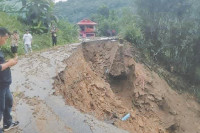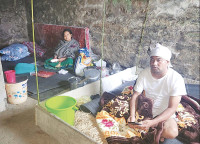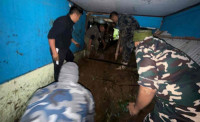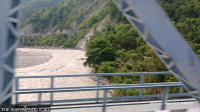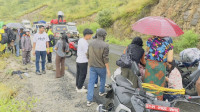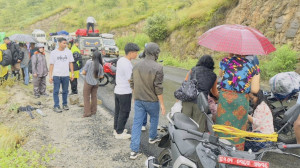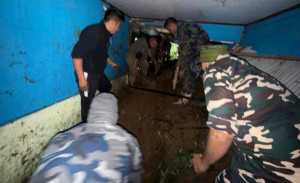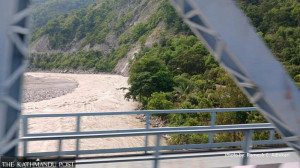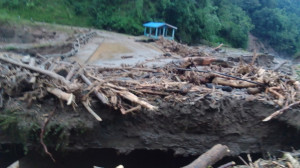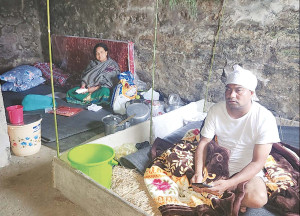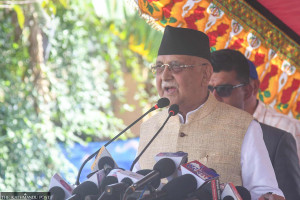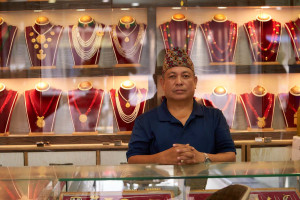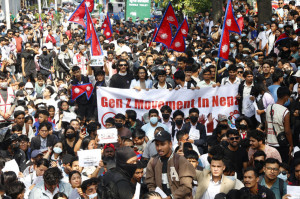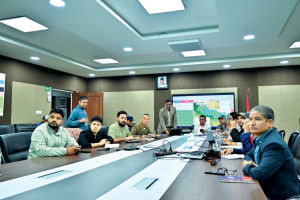Koshi Province
Bahundangi villagers rescue lost elephant calf after past cruelty
On Wednesday night, a herd of elephants entered Bahundangi in Jhapa from Kerabari in Naxalbari, India. The locals rescued the calf and handed it over to the Kolabari forest office of India.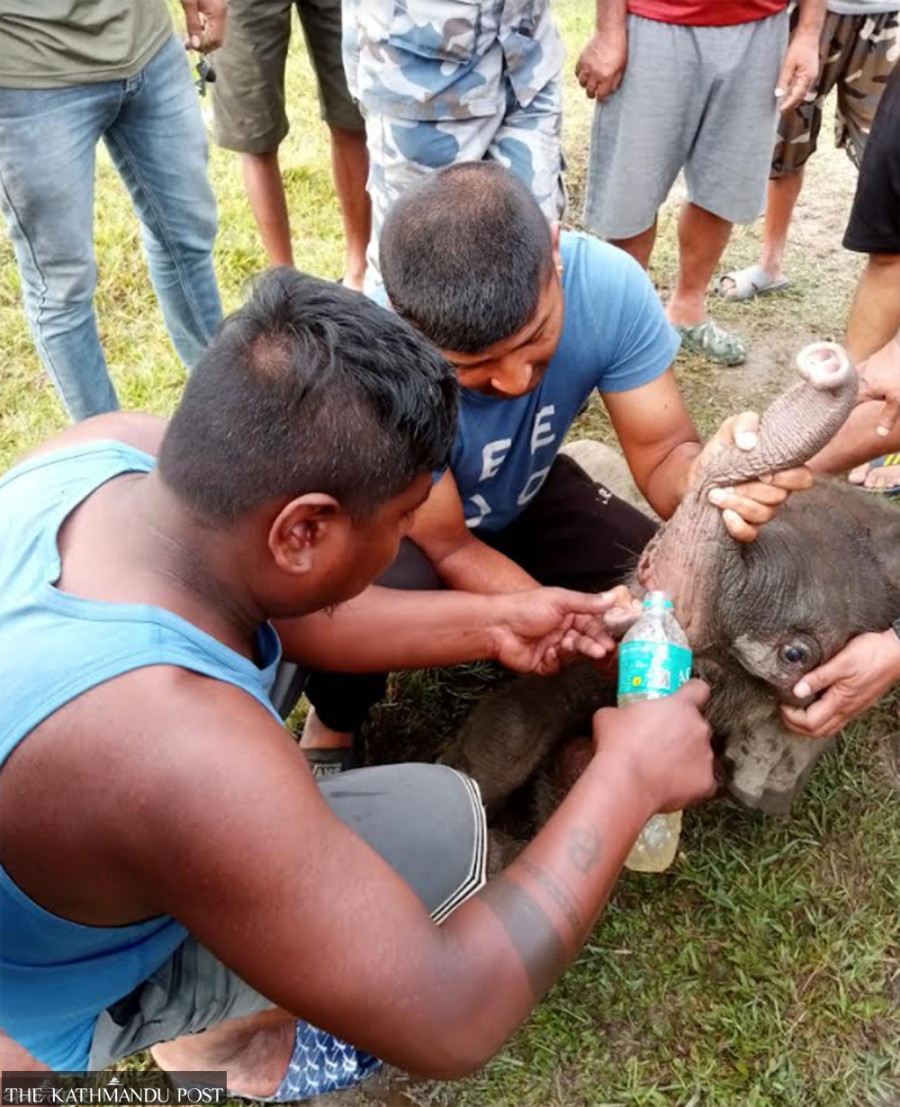
Parbat Portel
As usual, a herd of about two dozen wild elephants waded across the Mechi River and entered the Bahundangi village of Mechinagar Municipality in Jhapa from Kerabari, Naxalbari of India’s West Bengal state on Wednesday night. Among them was a cute calf of about 20 days. The pachyderms roamed around the cornfields in the area. The locals learnt about the ‘intrusion’ only at dawn and chased them away.
In the process, the calf got separated from its herd and was left behind in Bahundangi.
Unlike the blatant display of animal cruelty in June last year, the locals showed love, compassion and sympathy to the calf. The calf, visibly exhausted, was lying near Milan Chowk in Bahundangi. A local man, Bikram Chaudhary, hurriedly gave the calf some water from a nearby well in a bottle.
“The calf recuperated a bit after drinking water. We rescued the calf and handed it over to the authorities so that it could reunite with its mother,” said Chaudhary. According to him, rapid response teams of both Nepal and India, police, human-elephant conflict management committee and the forest office jointly rescued the calf and handed it over to the Kolabari forest office of India.
The elephants had become aggressive after the calf got separated from the herd.
“An enraged elephant attacked and injured a cyclist named Mohammad Khursid of Naxalbari near the Nepal-India border. The locals in Bahundangi knew about the separated calf only after the Indian park staffers rescued Khursid and rushed him to hospital,” said Prabin Bhandari, another local of Bahundangi.
In June last year, the residents of Mechinagar Municipality in Jhapa had physically abused an elephant calf separated from its herd. The herd had destroyed crops, dismantled houses and attacked people.
A group of angry locals were in the mood to have the young calf pay back for the damage done by its herd the night before. The locals surrounded the calf, lassoed it and brought it to the ground with a loud thump. Once the calf was on the ground immobile, its legs tied by ropes, some locals started taking selfies with the helpless animal while some began pulling the ropes and attacking it.
The brutality meted out on the calf, which was about two years old, had been criticised from various quarters.
But since that incident, the locals started showing love and respect to the wild elephants. “Our anger towards the elephants has gradually receded. Instead, we take care of them when needed,” said Chaudhary.
Arjun Kumar Karki, ward chairman of Mechinagar Municipality Ward 4, is happy as the local people have been quite positive towards wild elephants. “The locals now know that the elephants become more aggressive if they are subjected to mistreatment. They finally accept the coexistence of humans and elephants. It is a positive development,” said Karki.
According to him, various awareness programmes, seminars and workshops organised by various conservation organisations and the local unit about human-animal relations finally paid off.
Conservationists are elated with the changed attitude of the locals of Bahundangi, a battleground of human-elephant conflict, about wild elephants lately. “The attitude of the locals about elephants has gradually changed. It can be quite helpful to conserve wildlife as well as minimise human-animal conflict,” said Megha Raj Rai, chief of the District Forest Office in Jhapa.




 14.64°C Kathmandu
14.64°C Kathmandu
